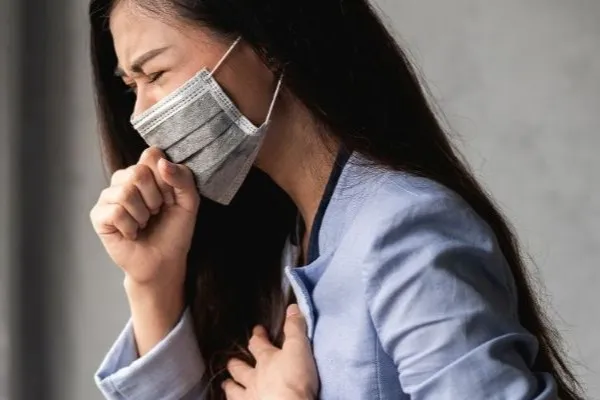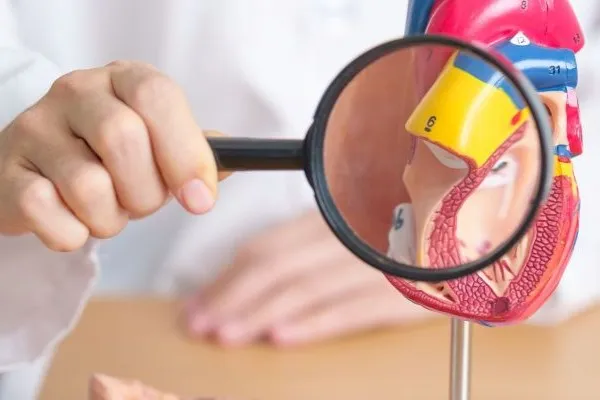Topics
Pneumonia is a serious respiratory infection that affects millions of people around the world each year. Caused by bacteria, viruses, or fungi, it inflames the air sacs in one or both lungs, which can fill with fluid or pus. While pneumonia can be life-threatening, especially among the elderly, infants, and those with compromised immune systems, many cases are preventable with timely care, good hygiene practices, and vaccinations (American Lung Association, 2025).
Understanding how pneumonia develops, the risk factors, and how to protect yourself is crucial to preventing complications.
Causes Of Pneumonia
Pneumonia develops when an infection causes inflammation in the lungs alveoli. These tiny air sacs are responsible for oxygen exchange, and when filled with fluid or pus, they reduce oxygen levels in the body (Centers for Disease Control and Prevention, 2024).
Bacterial Infections
The most common cause of pneumonia in adults is the bacterium Streptococcus pneumoniae. It often develops after a cold or flu when the immune system is already weakened.
Viral Infections
Viruses such as influenza, respiratory syncytial virus (RSV), and COVID-19 can cause viral pneumonia. Viral forms are especially common among young children and the elderly.
Fungal Infections
Less common, fungal pneumonia affects individuals with weakened immune systems, such as those undergoing chemotherapy or living with HIV/AIDS.
Ways To Prevent Pneumonia
Yes, pneumonia can often be prevented, especially when proactive health measures are taken (National Heart, Lung, Blood Institute, 2022).
Vaccination
Getting vaccinated is one of the most effective ways to prevent pneumonia. Pneumococcal vaccines protect against common bacterial strains, while the flu shot reduces the risk of viral infections that may lead to secondary pneumonia.
Practicing Good Hygiene
Frequent handwashing, especially after coughing, sneezing, or touching public surfaces, helps prevent the spread of germs. Proper cough etiquette, such as covering your mouth with your elbow, also reduces the risk of respiratory infections.
Avoiding Smoking
Smoking damages lung tissue and impairs the immune system’s ability to fight infections, making smokers more vulnerable to pneumonia.
Maintaining a Healthy Lifestyle
A strong immune system is your best defence. Eating a balanced diet, staying physically active, and getting enough sleep all contribute to overall lung health.
Protecting Vulnerable Groups
Infants, elderly people, and those with chronic illnesses should receive regular health check-ups. Caregivers should also ensure their vaccinations are up-to-date.
Pneumonia: Who Is at Risk
Some individuals are more susceptible to developing pneumonia due to age, health conditions, or lifestyle factors.
Infants and Young Children
Their immune systems are still developing, making them less able to fight off infections.
Older Adults
People over 65 years old have weakened immune systems and are often managing other health conditions that increase susceptibility.
People with Chronic Diseases
Conditions like diabetes, heart disease, asthma, or chronic obstructive pulmonary disease (COPD) increase the risk of pneumonia.
Immunocompromised Individuals
Cancer patients, organ transplant recipients, and individuals with HIV/AIDS are more vulnerable to infections.
Hospitalised Patients
Being in a healthcare setting, especially with mechanical ventilation, increases the likelihood of contracting hospital-acquired pneumonia.
Symptoms of Pneumonia
Pneumonia symptoms can vary based on age, type of infection, and underlying health conditions, but common indicators include:
Cough with Mucus
A persistent cough producing yellow, green, or bloody mucus.
High Fever and Chills
Sudden spikes in temperature, accompanied by sweating or chills, are typical.
Chest Pain
Sharp or stabbing pain that worsens with deep breaths or coughing.
Shortness of Breath
Difficulty breathing or rapid, shallow breathing can indicate fluid in the lungs.
Fatigue and Weakness
A feeling of extreme tiredness, even without physical exertion.
Frequently Asked Questions
1. How is pneumonia diagnosed?
Pneumonia is diagnosed through a combination of clinical evaluation, physical examination, and diagnostic tests. Examples include chest x-ray, blood tests, sputum test, bronchoscopy or CT scan.
2. Can pneumonia go away without treatment?
Mild cases of viral pneumonia may resolve on their own with rest and fluids. However, bacterial pneumonia requires antibiotics and medical attention to prevent complications.
3. Is pneumonia contagious?
Pneumonia itself is not contagious but the bacteria and viruses can be contagious.
4. How long does recovery from pneumonia take?
Recovery can take anywhere from a few days to several weeks, depending on the severity of the illness and the patient’s overall health.
5. Can preventing colds and flu help prevent pneumonia?
Absolutely. Pneumonia often develops as a complication of upper respiratory infections like colds and the flu. By taking steps to prevent these common illnesses (like vaccination and hygiene), you significantly reduce your risk of developing pneumonia.
Book an Appointment at Gleneagles Hospitals
Pneumonia remains a serious global health concern, but it is often preventable through vaccination, good hygiene, and a healthy lifestyle. Understanding your risk factors and recognising early symptoms can save lives. With proper medical guidance, individuals can take steps to safeguard themselves and their families.
Do not wait—book your appointment today and start your journey toward better health. Our team is here to support you every step of the way. You may also book an appointment via our website or download the MyHealth360 application from the Google Play Store or Apple App Store.



.webp?sfvrsn=91e0f4a4_9)




